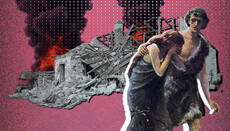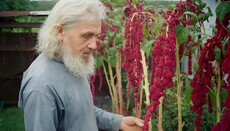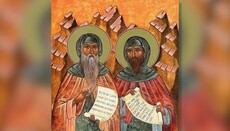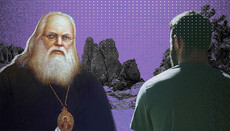Hard days of a persecuted community
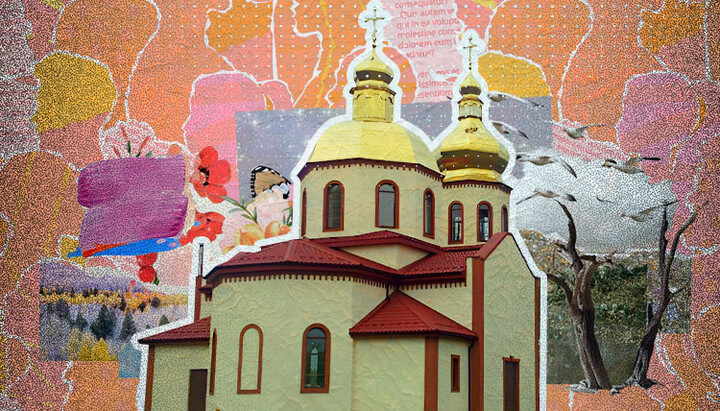
The story of the UOC community in Shevchenkove, which spent 25 years building its church, endured a personal tragedy in the life of its rector, and in 2024 was expelled by OCU raiders to pray in an old house.
Twenty-five years ago, a young priest, Fr. Volodymyr Latynnyk, was assigned to a newly formed parish dedicated to St. Michael the Archangel in the large settlement of Shevchenkove, Kyiv region, at the request of local believers.
The village council gave the faithful an abandoned, unheated wooden pavilion of a former furniture shop, where Fr. Volodymyr celebrated the first Divine Liturgy.
“The priest sewed vestments himself”: beginnings in a furniture shop
“It was a very difficult time,” recalls the rector’s assistant, the servant of God Maria. “From the entire eucharistic set, we had only one aluminum chalice. Father Volodymyr sewed his own vestments – his secular profession was tailor and cutter. The candleholders were handmade from wood, and the church walls were adorned with simple rural icons donated by villagers.”
Winters were especially hard: the makeshift church was heated with electric heaters, and it was difficult to stand through the services in the cold. But the priest endured everything courageously, inspiring others with his example of patience, gratitude, and love for God.
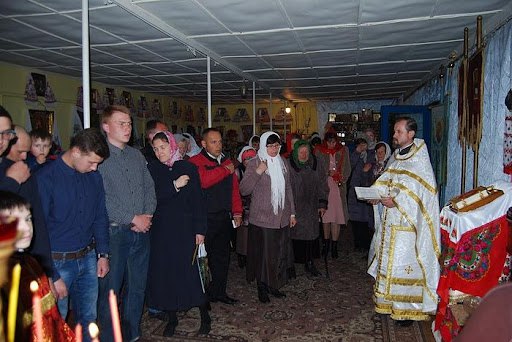
Born in the village himself, Fr. Volodymyr understood the lives and concerns of farmers, workers, and railwaymen (the settlement centers around industrial sites and the Bobryk railway station). A close-knit community formed around him. He gained respect in Shevchenkove, was an honored guest at public events, a regular participant in school ceremonies, and soon the parish became the spiritual heart of the settlement.
“Dad, these are ours”: tragedy and consolation
Nine years passed. Fr. Volodymyr and his wife Larysa were raising their only son, Mark. In 2009, tragedy struck: sixteen-year-old Mark, a tenth-grade student, was killed in a railway accident.
The author of these lines was present in the priest’s home that day, where the closed coffin of the boy lay, surrounded by sobbing classmates and grieving adults. The whole village attended the funeral. Priests came from neighboring parishes; the procession stretched all the way to the cemetery.
Shattered by the tragedy, Fr. Volodymyr and his matushka would rise in the middle of the night and go to the church to serve memorial Liturgies together. Later they went on a long pilgrimage to holy places, trying to heal the wound that would not close.
Soon, Fr. Volodymyr had a dream: his departed son Mark appeared with a radiant face, leading two small children by the hands, saying, “Dad, these are ours.” Doctors had previously told Larysa she could not have more children.
But exactly one year after Mark’s death, on the same day, a boy was born – named Ieronym (“sacred name” in Greek). Three years and three days later, a daughter was born – Hermionia (“she who unites”). Thus Mark’s comforting words came true, and the Lord consoled His faithful servants in their grief.
A prayed-for church
From his first day in Shevchenkove, the priest prayed for a new church to be built. Near the village school lay an abandoned lot, which the village council allocated to the parish.
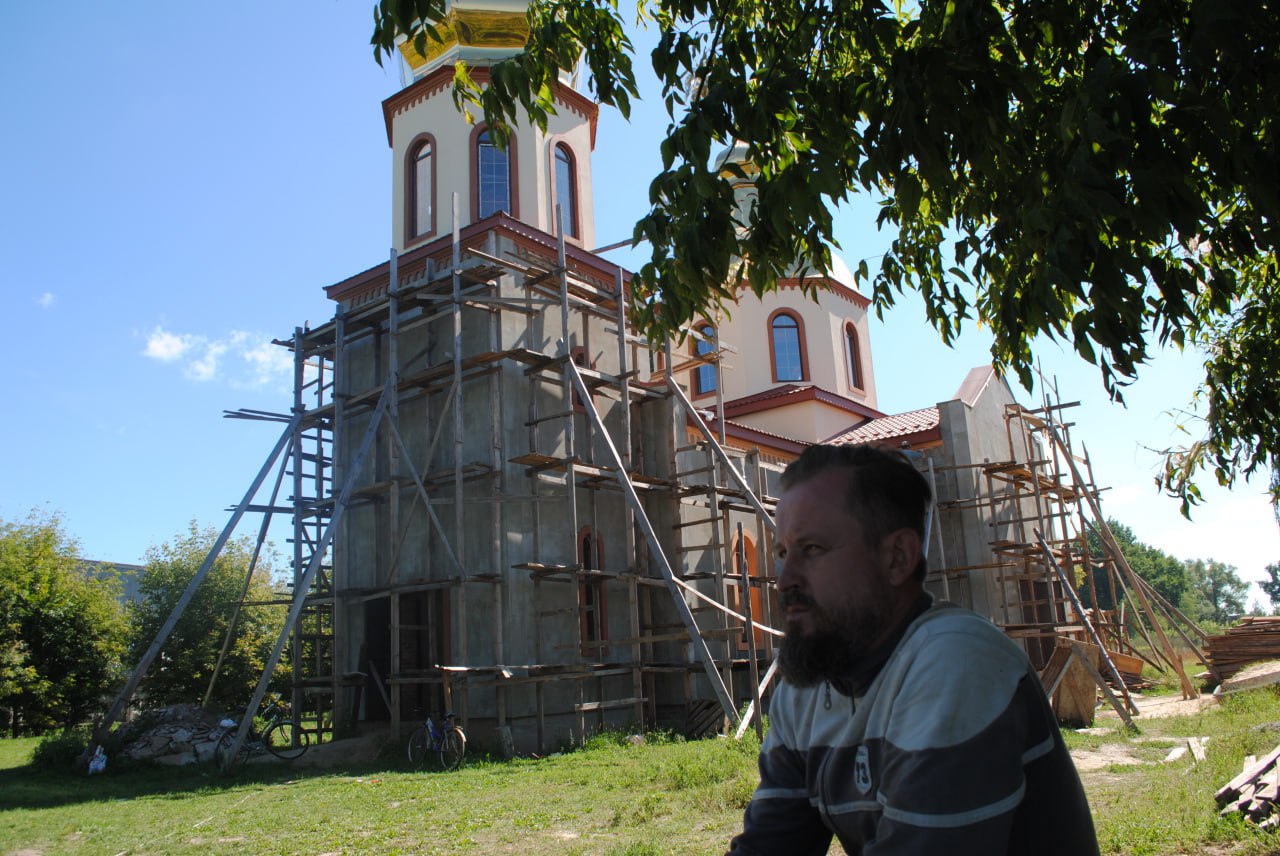
It took great effort to clear the old tree stumps and level the ground. The site was blessed, the foundation laid, and from morning till night the rector and his flock labored together.
Finally, the new church rose with golden domes, becoming an ornament of the village. A wrought-iron fence surrounded the grounds, and the parish planted flowers and evergreens. “Our church is like a painted Easter egg!” rejoiced the villagers.
Inside, a beautiful carved iconostasis adorned the sanctuary, with icons written in Kyiv – including those of the Venerable Job and Amphilochius of Pochaiv, blessed at the Pochaiv Lavra with relics of the saints. The dome lighting changed color for the feasts: gold, white, blue, or crimson.
When fighting broke out in 2022, the village was temporarily occupied by Russian troops; many homes were destroyed by shelling, and eight civilians were killed. Fr. Volodymyr buried the dead, comforted the grieving, and prayed daily for peace and for fallen soldiers from the village.
The seizure: drunken “priests” of the OCU
This continued until 2024, when the criminal hand of the OCU reached for the new church. Fr. Volodymyr was summoned by officials in Brovary and urged to join the OCU. He categorically refused.
Then, one day in 2024, raiders arrived with police and OCU “clergy.” The seizure was led by the drunken OCU “priests” Kostiantyn Pedan and “Archimandrite” Vikentiy, secretary to the defector “Metropolitan” Oleksandr Drabynko.
The parish was prepared: the faithful had removed all liturgical items, the altar, and the icons.
The new OCU “priest” later complained to his small group of followers: “Fr. Volodymyr not only took everything out of the legally transferred church – he took all the people with him.”
No one “led” the flock away – they left on their own. The community moved with their priest to a small house near the railway station, purchased with donations. I was able to attend one of their services.
“What grace we felt!”: worship in an old house
“Blessed are you when people revile you and persecute you, and say all kinds of evil against you falsely for My sake. Rejoice and be exceedingly glad, for great is your reward in heaven, for so they persecuted the prophets who were before you” (Matthew 5:11–12).
These were the opening words of Fr. Volodymyr’s sermon at the first Divine Liturgy held in the small, crowded room of an old rural house hastily repurposed for worship.
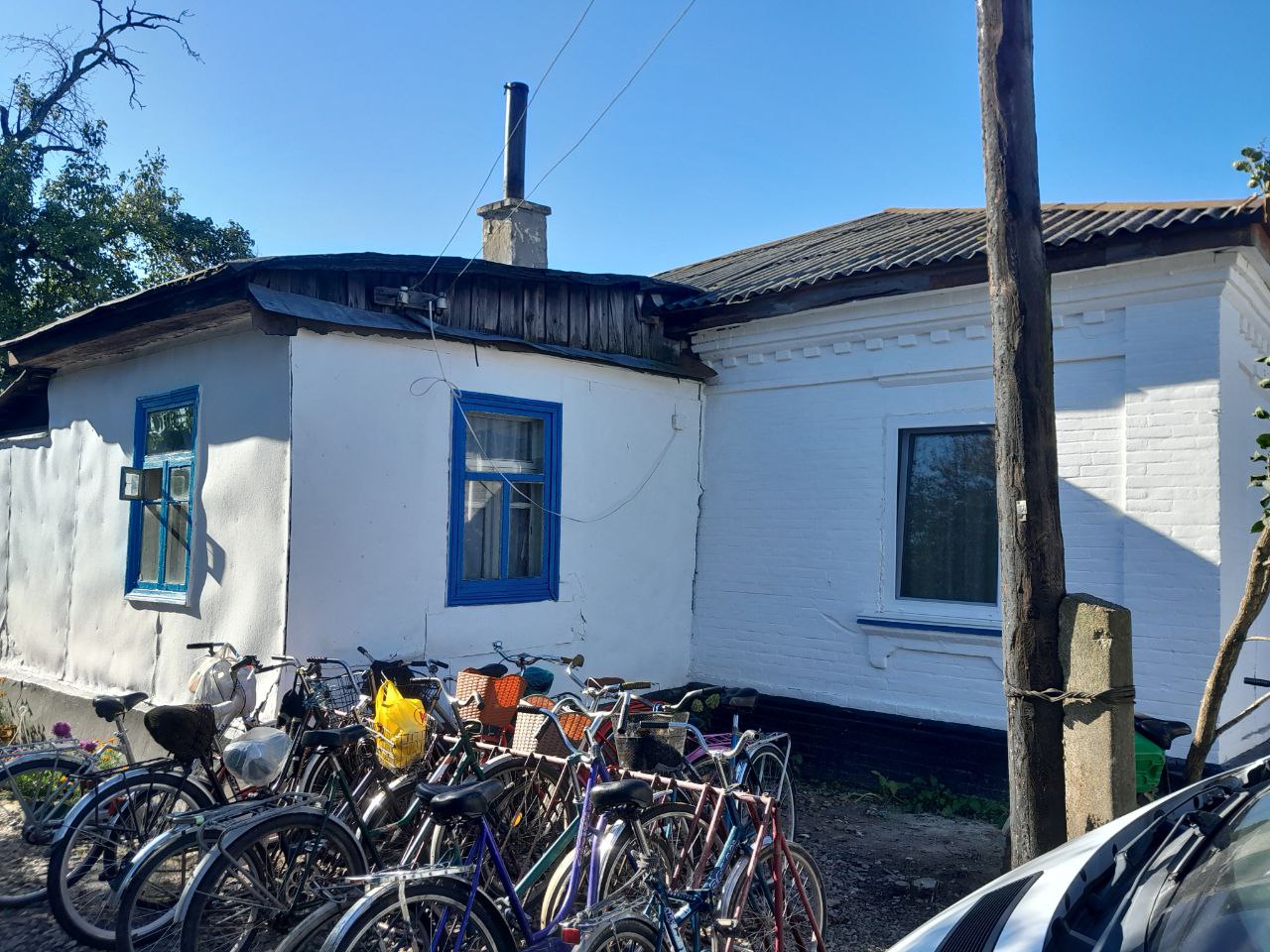
“You would not believe what grace of the Holy Spirit we felt during that first Liturgy in this blessed little house, reviled and persecuted as we are!” Fr. Volodymyr shared. “It was a truly Paschal joy – the joy of the nearness of Christ Himself and the Mother of God. And we feel that same joy at every service in this poverty and narrowness.
Not because our church was unlawfully taken from us, but because God is with us.”
These words of the mitred archpriest Fr. Volodymyr Latynnyk apply to hundreds of other communities of the canonical Ukrainian Orthodox Church whose churches have been unlawfully seized by schismatics.
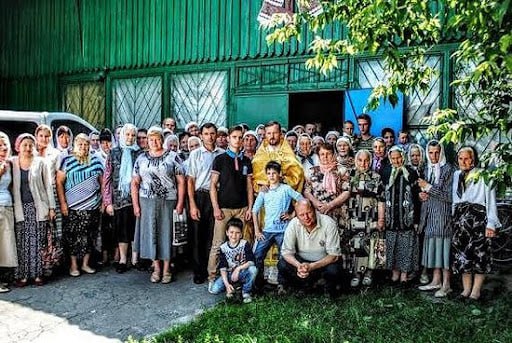
The faithful know – and the two-thousand-year history of the Church of Christ bears witness – that persecutions will cease, the persecutors will be put to shame, and their works will be scattered “like clouds without water, carried about by the winds; like autumn trees without fruit, twice dead, plucked up by the roots” (Jude 1:12).

